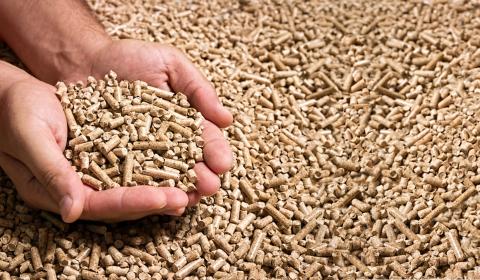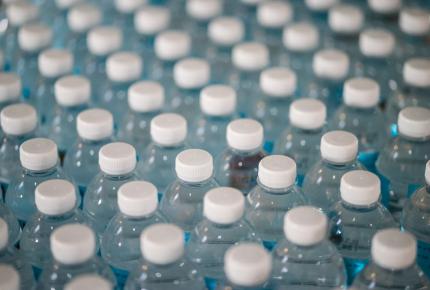
Sourcing and implementing clean bioenergy
As companies worldwide battle to reduce their greenhouse gas (GHG) emissions and carbon footprint, many are turning to renewable energy sources. One available alternative is bioenergy, an energy source derived from organic materials that is capable of providing heat, electricity and fuel.
However, companies looking to use bioenergy need to be aware of its supply chain. Previous controversies surrounding sourcing have included deforestation, Indirect Land Use Change (ILUC) risk and methane pollution. Regulatory compliance is therefore increasingly important to ensure the solution chosen is actually sustainable. Where and how the energy is produced and the carbon emissions from the process are factors that need to be monitored and audited.
What is bioenergy and where does it come from?
By breaking down organic materials such as agricultural crops and animal and plant wastes and residues, also known as feedstock or biomass, we can create bioenergy. This can be achieved by burning, bacterial decay, or gasification. Where the feedstocks are dry, such as wood, they are burned in furnaces to boil water, create steam and drive turbines. Wet feedstocks like animal waste are allowed to rot in oxygen-free tanks to produce biogas and biomethane, which is captured and burned[1] or pumped into the natural gas grid. Biomass can also pass through a gasification process in which it is exposed to high temperatures to produce synthesis gas that can then be burned to produce electricity[2].
As trees, crops and waste naturally absorb and store CO2, it is essential to strike a healthy balance between biomass harvesting and stewardship of forests and other plant resources. The neutrality of bioenergy depends on a number of factors, notably the type of biomass being produced, and whether it is sourced from an existing carbon rich area, such as a primary forest, wetland or peatland.
What are the issues with biomass sustainability?
If wood is being burned, companies need to ensure they are replanting trees at the same rate to maintain long-term production capacity. Not doing so can affect carbon emissions as more wood is being burned than is regrowing. Soybean or palm oil can be considered sustainable if no deforestation has taken place. If animal waste is being burned, utilizing sealed tanks is essential to capture methane and avoid its release into the atmosphere.
Biomass sustainability extends beyond carbon. Harvesting can impact biodiversity and result in damaging land use change. Social factors are also at play: safe working conditions, and compliance with laws, land rights and human rights need to be observed.
When managed correctly, biomass production can provide an effective sustainable energy solution. However, companies must consider that flawed or poorly controlled processes can have negative impacts on the environment. In order to reap the benefits, businesses must ensure they are sourcing from clean and reputable bioenergy supply chains.
Biofuel as a viable solution for transportation
Adopting bioenergy enables organizations to significantly reduce greenhouse gas (GHG) emissions. This benefit is felt most keenly in industries which are currently heavily dependent on fossil fuels, such as transport.
Biofuels are already widely used in road transport, with shipping companies and airlines now also starting the shift towards this greener fuel. This trend is supported both by supply – biofuels production is expected to increase by 25% over the next 5 years[3] - and by regulation. Countries and regulatory bodies including the United States and the European Union have established policy mechanisms to cut emissions from transport fuel and support the use of biofuels. The EU’s Renewable Energy Directive 2018/2001 (RED II) promotes “advanced” biofuels and limits the share of unsustainable crop-based biofuels on the basis of their land use change impact.
The Carbon Offsetting and Reduction Scheme for International Aviation (CORSIA), is the principal mechanism for aviation to meet long-term decarbonization targets. Air travel accounts for 1.9% of global GHG emissions [4]. To achieve compliance with CORSIA, airlines will need to choose Sustainable Aviation Fuels (SAF) that result in lower emissions. Biofuel is today the most readily available SAF.
Fueling a circular economy model
Another benefit for companies implementing bioenergy is its contribution to the circular economy model. Transforming leftover materials from the production chain into renewable feedstocks for energy production enables companies to preserve resources, reuse sub-products, and recycle waste products to retain their highest value state. For example, used cooking oil (UCO) is increasingly being collected from restaurants and food industry operators to produce biodiesel, with supply chain verification used to ensure the waste is really waste. By ditching the traditional “take-make-waste” framework in favor of this closed-loop system, organizations can minimize waste and GHG emissions: in the case of UCO, companies can also gain tax incentives in Europe.
Biomass briquettes can be produced from a variety of organic matter, making biofuel an essentially unlimited resource. This widespread availability translates to lower use and production costs compared to those of traditional fossil fuels. Furthermore, companies in the EU that switch to bioenergy are eligible for financial incentives through a number of funding programs.
Finally, consumers are changing their habits and preferences and becoming more aware of negative environmental impacts of potential purchases. By switching to bioenergy, companies can attract and retain these ethically conscious customers.
WEBINAR
Prove your company’s circularity with ISCC PLUS bio and circular materials certification.
Watch the replay now
Implementing and verifying sustainable bioenergy
For businesses looking to secure these advantages, several certification schemes are available. The most widely used is the International Sustainability and Carbon Certification (ISCC); a global certification system verifying the sustainability of feedstocks. Like all the range of EU approved available schemes, ISCC promotes the protection of forests and biodiversity through sustainable biomass generation[5]. Voluntary certification can contribute to the reduction of GHG emissions, the promotion of sustainable land use and traceability, while enabling businesses to prove their biofuel and biomass production complies with EU regulations.
For businesses in the aviation industry looking to deploy Sustainable Aviation Fuels (SAFs), ISCC has developed a specific biofuels certification scheme for CORSIA. With this scheme, companies can demonstrate sustainable biomass production as well as fuel compliance with GHG and other sustainability criteria. Eligible fuels must achieve at least 10% GHG emission reduction over their lifespan, and must be sourced from biomass obtained from land with high carbon stock[6].
Additional certification is available for businesses through the SURE program, which promotes the protection of land with high biodiversity value and high carbon stocks. The system enables organizations to demonstrate the sustainability of electricity and heat produced from biomass, and allows them to show compliance with the requirements of the EU’s RED II Directive.
How we can help you get certified
Bureau Veritas Certification can support businesses in proving the green credentials of their bioenergy. Our services enable them to demonstrate their commitment to sustainable solutions and avoid accusations of greenwashing and reputational damage.
Our experience as one of the global leaders in certification makes us the ideal partner for businesses who value sustainable development. Bureau Veritas Certification is accredited to carry out ISCC EU, ISCC CORSIA, REDcert EU and SURE audits, as well as 2BSvs and KZR INiG. Certification against these schemes will enable businesses to prove the conformity of their bioenergy with regards to the sustainability criteria set by these internationally recognized bodies.
If your company is looking to implement and certify sustainable bioenergy, contact us today
SOURCES:
[1] Good Energy: what is bioenergy? (https://www.goodenergy.co.uk/our-energy/our-fuel-mix/what-is-bioenergy/)
[2] Biopower basics (https://www.energy.gov/eere/bioenergy/biopower-basics)
[3] IEA: Transport biofuel forecast (https://www.iea.org/reports/renewables-2019/transport#abstract)
[4] Climate change and flying: what share of global CO2 emissions come from aviation?(https://ourworldindata.org/co2-emissions-from-aviation#:~:text=Global%20aviation%20(including%20domestic%20and,of%20its%20impact%20on%20warming)
[5] ISCC for the sustainable energy sector (https://www.iscc-system.org/process/market-applications/iscc-for-energy/)
[6] CORSIA SAF Certification with ISCC (https://www.iscc-system.org/wp-content/uploads/2019/09/ICAO-Environmental-Report-CORSIA-SAF-Certification-with-ISCC.pdf)

